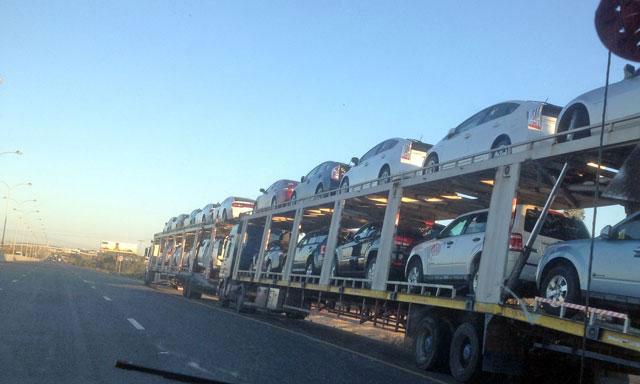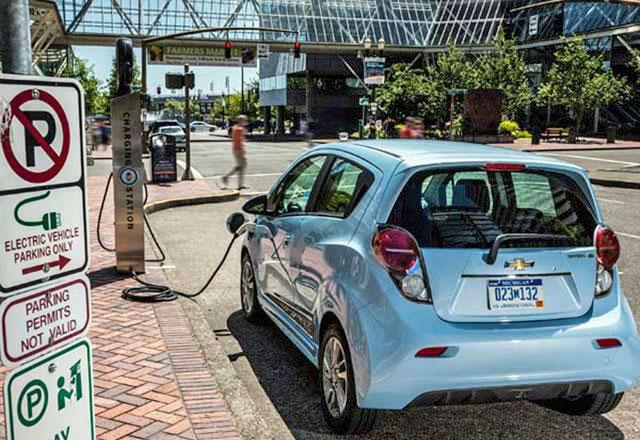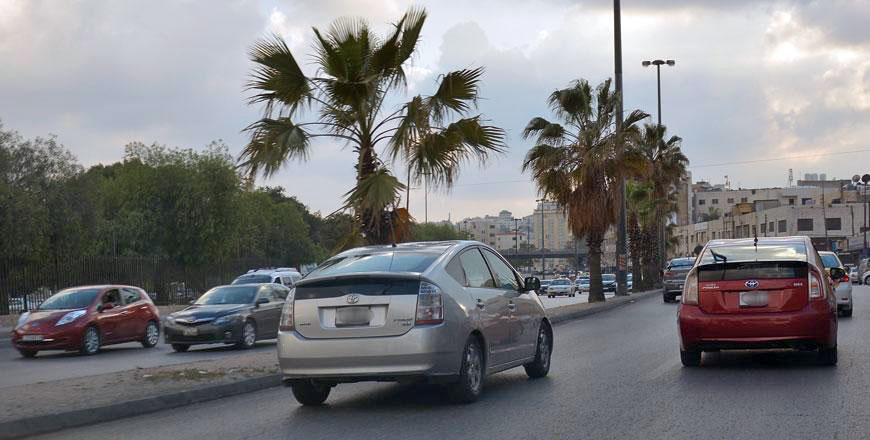You are here
Electric car sales drop by 70% as new tax goes into effect
By Maram Kayed - May 01,2019 - Last updated at May 01,2019

Imported cars are being transported to free zones for sale in this undated photo (JT file photo)
AMMAN — Electric car sales went down by 70 per cent in April as a 25 per cent tax hike on the vehicles went into effect, the Jordanian Free Zones Investors Association (JFZIA) announced on Tuesday.
According to JFZIA President Mohammed Bostanji, the sector will soon “come to a halt” following the imposed tax.
In December of last year, the government passed the clearance tax law on electric cars, which were formerly exempt from the tax altogether, but granted dealers an extension until March 30 to import and sell electric cars without it.
“The exemption was granted until March because some car dealers had bought electric cars late last year from the US, before the tax law was passed, and the cargo still needed a four-month shipping period to arrive,” JFZIA Deputy President Hisham Quteishat told The Jordan Times in previous remarks.
On Tuesday, he said in a phone interview that the government “has no intention of extending that exemption period”.
The association’s president further noted that imports from the US in particular have gone down by 90 per cent since the beginning of this year.
The latest statistics conducted in late April by JFIZA show that around 15,000 electric cars are now in the country’s free zones with “no potential buyers”.
“A stagnation in sales caused by taxation is something that free zones were created to avoid,” Quteishat said.
“These cars were very affordable for low- and middle-income citizens, but now their price will go up at least JD3,000—8,000 per vehicle,” he said, noting as well that in addition to affordability, the cars are environmentally friendly and “promote a sustainable Jordan”.
Bostanji highlighted that this hit to the market follows an earlier one to hybrid vehicles following a 35 per cent clearance tax hike that was imposed in late 2018 and went into effect at the beginning of the year.
In January, hybrid vehicles’ trade volume dropped by 85-90 per cent, according to the association.
Under the new tax amendments, the clearance tax for hybrid cars will reach 40 per cent in 2020 and 45 per cent in 2021.
“Stakeholders in the sector are now storing their cars outside of Jordan and only importing ones for immediate sales because they are now afraid of more taxation and unexpected laws that would affect their businesses. They have already endured millions in losses this year,” Bostanji noted.
Related Articles
AMMAN — The number of electric cars being cleared out of the Free Zone has dropped to no more than 50 cars a month, compared with 700-800 ca
AMMAN — Clearance on electric cars went up by more than 100 per cent in the first third of the year, before witnessing a slowdown in May, th
AMMAN — The total trade value of hybrid cars in January plummeted an estimated 85-90 per cent, compared with the same period last year, acco


















